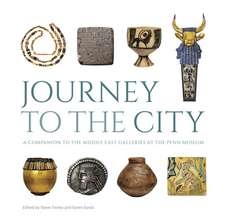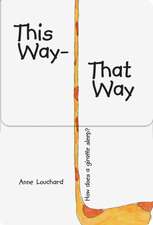Queering the Color Line – Race and the Invention of Homosexuality in American Culture: Series Q
Autor Siobhan B. Somervilleen Limba Engleză Paperback – 12 ian 2000
Din seria Series Q
-
 Preț: 240.90 lei
Preț: 240.90 lei -
 Preț: 146.75 lei
Preț: 146.75 lei -
 Preț: 217.18 lei
Preț: 217.18 lei -
 Preț: 176.68 lei
Preț: 176.68 lei -
 Preț: 158.81 lei
Preț: 158.81 lei -
 Preț: 169.81 lei
Preț: 169.81 lei -
 Preț: 194.37 lei
Preț: 194.37 lei -
 Preț: 227.14 lei
Preț: 227.14 lei -
 Preț: 168.75 lei
Preț: 168.75 lei -
 Preț: 191.15 lei
Preț: 191.15 lei -
 Preț: 191.36 lei
Preț: 191.36 lei -
 Preț: 151.58 lei
Preț: 151.58 lei -
 Preț: 243.90 lei
Preț: 243.90 lei -
 Preț: 193.54 lei
Preț: 193.54 lei -
 Preț: 210.82 lei
Preț: 210.82 lei -
 Preț: 217.18 lei
Preț: 217.18 lei -
 Preț: 151.08 lei
Preț: 151.08 lei -
 Preț: 264.26 lei
Preț: 264.26 lei -
 Preț: 231.22 lei
Preț: 231.22 lei -
 Preț: 266.93 lei
Preț: 266.93 lei -
 Preț: 305.08 lei
Preț: 305.08 lei -
 Preț: 230.02 lei
Preț: 230.02 lei -
 Preț: 314.12 lei
Preț: 314.12 lei -
 Preț: 304.47 lei
Preț: 304.47 lei -
 Preț: 264.26 lei
Preț: 264.26 lei -
 Preț: 267.70 lei
Preț: 267.70 lei -
 Preț: 262.32 lei
Preț: 262.32 lei -
 Preț: 236.86 lei
Preț: 236.86 lei -
 Preț: 270.20 lei
Preț: 270.20 lei -
 Preț: 265.79 lei
Preț: 265.79 lei -
 Preț: 229.09 lei
Preț: 229.09 lei -
 Preț: 231.60 lei
Preț: 231.60 lei -
 Preț: 270.31 lei
Preț: 270.31 lei - 5%
 Preț: 197.54 lei
Preț: 197.54 lei - 9%
 Preț: 667.83 lei
Preț: 667.83 lei - 15%
 Preț: 623.39 lei
Preț: 623.39 lei -
 Preț: 259.54 lei
Preț: 259.54 lei
Preț: 174.69 lei
Nou
Puncte Express: 262
Preț estimativ în valută:
33.43€ • 34.99$ • 27.66£
33.43€ • 34.99$ • 27.66£
Carte disponibilă
Livrare economică 15-29 martie
Livrare express 01-07 martie pentru 28.85 lei
Preluare comenzi: 021 569.72.76
Specificații
ISBN-13: 9780822324430
ISBN-10: 0822324431
Pagini: 272
Ilustrații: 6 illustrations
Dimensiuni: 157 x 233 x 19 mm
Greutate: 0.46 kg
Editura: MD – Duke University Press
Seria Series Q
ISBN-10: 0822324431
Pagini: 272
Ilustrații: 6 illustrations
Dimensiuni: 157 x 233 x 19 mm
Greutate: 0.46 kg
Editura: MD – Duke University Press
Seria Series Q
Recenzii
"By offering a new understanding of the emergence of race and sexuality as collaborative entities, Somerville has made an important contribution to the expanding scholarship in African American studies, American studies, queer theory, and cultural studies."--Robyn Wiegman, author of American Anatomies: Theorizing Race and Gender
"This book pioneers new strategies for understanding the intersectionality of sexuality and race formation. Equally adept at textual analysis and historical contextualisation, Somerville demonstrates how the early sexological division of people into homosexuals and heterosexuals was profoundly shaped by the discourse of scientific racism, and she elaborates her argument through a series of subtle reinterpretations of cinematic and literary texts that illuminate the profound--usually inexplicit--interdependence of racial and sexual discourse. A path-breaking study."--George Chauncey, University of Chicago
"Queering the Color Line is a groundbreaking study that sets a new agenda for critical investigations of the intersecting histories of race and sexuality in the United States. Siobhan Somerville provides a model of interdisciplinary, politically engaged scholarship that is certain to become required reading in queer studies, race theory, and U.S. history as well as American literature."--Lisa Duggan, New York University
No discussion of the way queer theory and ethnic studies enhance each other would be complete without mentioning Siobhan B. Somervilles groundbreaking 2000 book, Queering the Color Line -- considered the first salvo in the developing field of race and sexuality studies.Robert Reid-Pharr, The Chronicle Review
"By offering a new understanding of the emergence of race and sexuality as collaborative entities, Somerville has made an important contribution to the expanding scholarship in African American studies, American studies, queer theory, and cultural studies."--Robyn Wiegman, author of American Anatomies: Theorizing Race and Gender "This book pioneers new strategies for understanding the intersectionality of sexuality and race formation. Equally adept at textual analysis and historical contextualisation, Somerville demonstrates how the early sexological division of people into homosexuals and heterosexuals was profoundly shaped by the discourse of scientific racism, and she elaborates her argument through a series of subtle reinterpretations of cinematic and literary texts that illuminate the profound--usually inexplicit--interdependence of racial and sexual discourse. A path-breaking study."--George Chauncey, University of Chicago "Queering the Color Line is a groundbreaking study that sets a new agenda for critical investigations of the intersecting histories of race and sexuality in the United States. Siobhan Somerville provides a model of interdisciplinary, politically engaged scholarship that is certain to become required reading in queer studies, race theory, and U.S. history as well as American literature."--Lisa Duggan, New York University "No discussion of the way queer theory and ethnic studies enhance each other would be complete without mentioning Siobhan B. Somerville's groundbreaking 2000 book, Queering the Color Line -- considered the first salvo in the developing field of race and sexuality studies." - Robert Reid-Pharr, The Chronicle Review
"This book pioneers new strategies for understanding the intersectionality of sexuality and race formation. Equally adept at textual analysis and historical contextualisation, Somerville demonstrates how the early sexological division of people into homosexuals and heterosexuals was profoundly shaped by the discourse of scientific racism, and she elaborates her argument through a series of subtle reinterpretations of cinematic and literary texts that illuminate the profound--usually inexplicit--interdependence of racial and sexual discourse. A path-breaking study."--George Chauncey, University of Chicago
"Queering the Color Line is a groundbreaking study that sets a new agenda for critical investigations of the intersecting histories of race and sexuality in the United States. Siobhan Somerville provides a model of interdisciplinary, politically engaged scholarship that is certain to become required reading in queer studies, race theory, and U.S. history as well as American literature."--Lisa Duggan, New York University
No discussion of the way queer theory and ethnic studies enhance each other would be complete without mentioning Siobhan B. Somervilles groundbreaking 2000 book, Queering the Color Line -- considered the first salvo in the developing field of race and sexuality studies.Robert Reid-Pharr, The Chronicle Review
"By offering a new understanding of the emergence of race and sexuality as collaborative entities, Somerville has made an important contribution to the expanding scholarship in African American studies, American studies, queer theory, and cultural studies."--Robyn Wiegman, author of American Anatomies: Theorizing Race and Gender "This book pioneers new strategies for understanding the intersectionality of sexuality and race formation. Equally adept at textual analysis and historical contextualisation, Somerville demonstrates how the early sexological division of people into homosexuals and heterosexuals was profoundly shaped by the discourse of scientific racism, and she elaborates her argument through a series of subtle reinterpretations of cinematic and literary texts that illuminate the profound--usually inexplicit--interdependence of racial and sexual discourse. A path-breaking study."--George Chauncey, University of Chicago "Queering the Color Line is a groundbreaking study that sets a new agenda for critical investigations of the intersecting histories of race and sexuality in the United States. Siobhan Somerville provides a model of interdisciplinary, politically engaged scholarship that is certain to become required reading in queer studies, race theory, and U.S. history as well as American literature."--Lisa Duggan, New York University "No discussion of the way queer theory and ethnic studies enhance each other would be complete without mentioning Siobhan B. Somerville's groundbreaking 2000 book, Queering the Color Line -- considered the first salvo in the developing field of race and sexuality studies." - Robert Reid-Pharr, The Chronicle Review
Notă biografică
Textul de pe ultima copertă
""Queering the Color Line "is a groundbreaking study that sets a new agenda for critical investigations of the intersecting histories of race and sexuality in the United States. Siobhan Somerville provides a model of interdisciplinary, politically engaged scholarship that is certain to become required reading in queer studies, race theory, and U.S. history as well as American literature."--Lisa Duggan, New York University
Cuprins
Acknowledgments ix
Introduction 1
1. Scientific Racism and the Invention of the Homosexual Body 15
2. The Queer Career of Jim Crow: Racial and Sexual Transformation in Early Cinema 39
3. Inverting the Tragic Mulatta Tradition: Race and Homosexuality in Pauline E. Hopkins’s Fiction 77
4. Double Lives on the Color Line: “Perverse” Desire in The Autobiography of an Ex-Coloured Man 111
5. “Queer to Myself As I Am to You”: Jean Toomer, Racial Disidentification, and Queer Reading 131
Conclusion 166
Appendix 177
Notes 181
Bibliography 221
Index 249
Introduction 1
1. Scientific Racism and the Invention of the Homosexual Body 15
2. The Queer Career of Jim Crow: Racial and Sexual Transformation in Early Cinema 39
3. Inverting the Tragic Mulatta Tradition: Race and Homosexuality in Pauline E. Hopkins’s Fiction 77
4. Double Lives on the Color Line: “Perverse” Desire in The Autobiography of an Ex-Coloured Man 111
5. “Queer to Myself As I Am to You”: Jean Toomer, Racial Disidentification, and Queer Reading 131
Conclusion 166
Appendix 177
Notes 181
Bibliography 221
Index 249
Descriere
The interconnected constructions of race and sexuality at the turn of the century.





















